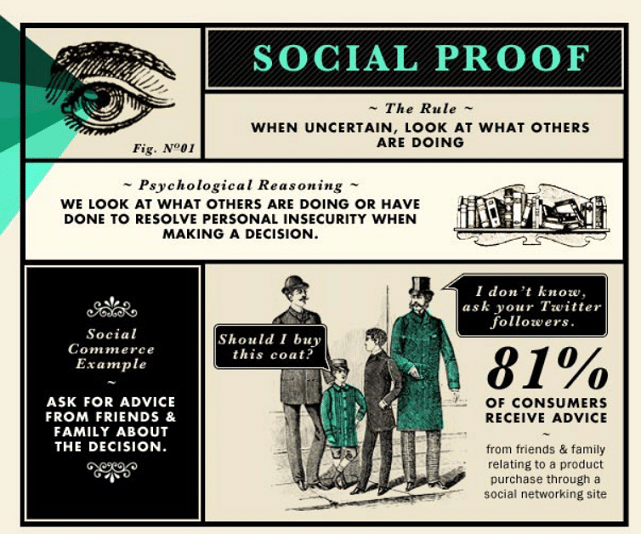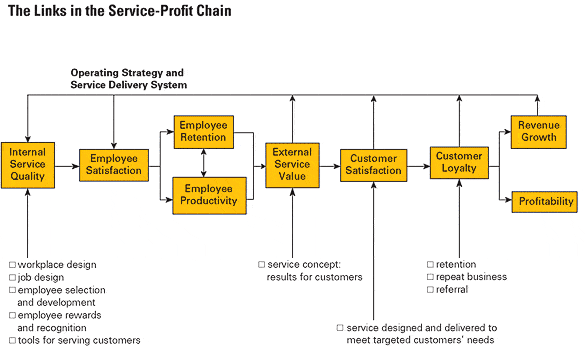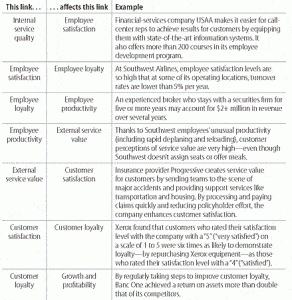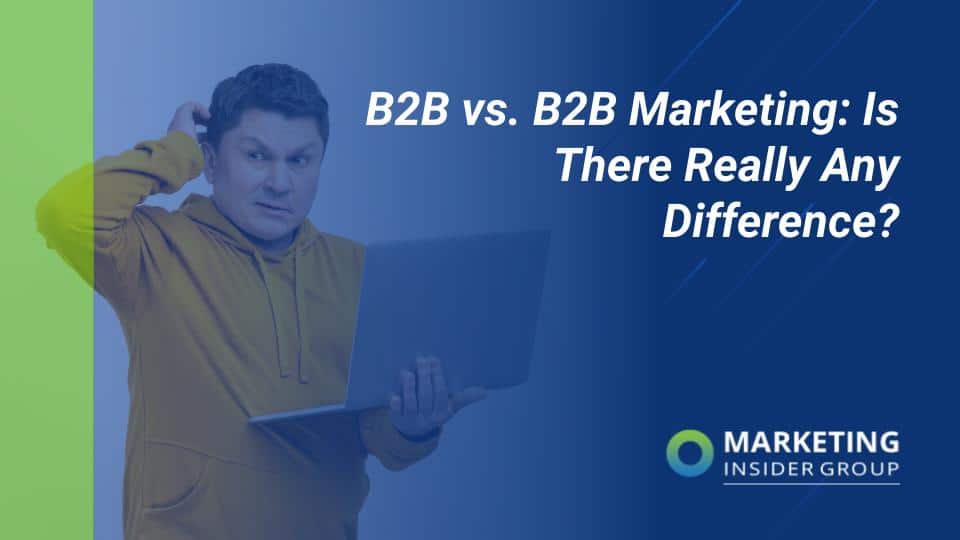
How Customer Loyalty Is Really Earned
You can’t buy your customers. Promotional offers, special discounts, and giveaways may motivate more sales – during the promotional period. They may gain some brand favor while the free sample is being used or the discounted subscription pricing is in effect. Even loyalty programs have an appeal, but they do nothing to establish brand authenticity. When the honeymoon is over, you’re left to face the reality of who everyone in the relationship truly is.
Brand and customer, til’ customer dissatisfaction or brilliant competitor marketing, do you part.
Trying to improve your customer retention numbers with short-term savings, deals and other offers is a short-term solution. This tactic doesn’t, however, impact who your brand is in the eyes of your target buyers, nor does it influence who your customers are in relationship to your brand.
- Extremely satisfied customer arm in arm with industry leader with a killer customer service department.
- Your product/service-will-do-for-now, dancing with qualified brand that is unable to express its UVP effectively.
- Uncertain buyer agrees to drinks and dinner (it’s free, why not?) with new business with a great social media presence, but really nothing to back it up with.
Which relationship is going to last?
To earn customer loyalty, the real thing, you need a long-term strategy, not a short-term 20 percent off all products solution. These types of customer loyalty tactics are fleeting and aren’t effective at retaining customers.
If you want your customers to stick around, even when you have to increase your prices or your order arrives a few days late, you have to be the brand they want to do business with. How do you become ‘the one’?
Establish Trust
Trust has taken on a whole new meaning for the consumer-business relationship in the past 20 or 30 years. This isn’t just because consumerism has changed but rather because the world has catapulted into a new era – it’s a digital, post-internet, waxing smartphones-waning coral reefs world.
- Organizations have to convince customers to trust them with their personal data
- Consumers have easy access to more information and as such demand a higher level of transparency
- Brands are expected to give back to the global community and align with their buyers’ personal values
Cultivating trust isn’t something that happens overnight. This is because it takes years to build up a solid reputation.
Brick, by brick, every piece of content you publish can be used to establish your brand as a trusted industry leader. Transparency should be a priority – this means publicly admitting mistakes and making your business’s stance on privacy and data sharing clear.
Genuinely giving back in some way, is another important factor for becoming a trustworthy brand. Think of brands like Newman’s Own – a company that has given away more than $495 million to nonprofits. Who doesn’t feel good about buying Newman’s Own pasta sauce? A Nielsen study found that, worldwide, 73 percent of millennials and 66 percent of consumers of all age groups are willing to pay more for sustainable brands.
If you want long-term commitment, trust, transparency, and responsibility are powerful tools for convincing customers to be loyal – not to mention these values foster a more positive workplace environment and a more fulfilling job for you.
Provide Social Proof as Subtle, Yet Powerful Magnetism
Don’t stop with being an authentic, trustworthy brand. To earn your customers’ loyalty, you’ll also have to demonstrate that other people already believe in the business. Customer testimonials, positive online reviews, customer recommendations on social media. They all put out those subtle messages that what your product or service offers is worth it.

Social proof is an important part of expressing the value of your brand to your consumers. Nothing says, ‘I’m worth it’ like, ‘they think I’m worth it, you don’t want to miss out’. Call it herd mentality, self-determination theory or implicit egotism, it doesn’t matter. Part of the human experience is feeling connected to our families, friends, community, and the whole of humanity. Social proof plays off this essential concept of how the human psyche operates.
Respond to Customer Feedback
Who wants to have a relationship with someone who doesn’t listen to their needs? This is an essential part of successful marketing for customer relationship building: becoming a better listener.
- Are you researching what your market is saying about your industry, your product, and your competitors on social media sites, blog comments, and community forums?
- How quickly and consistently does your brand respond to feedback (online reviews, social posts, customer emails), both publicly and privately?
- How much is your messaging influenced by customer feedback channels?
It’s one thing to answer all customer complaints, respond to feedback, and allow for an open dialogue. But, to take your customer relationship building to the next level, try being responsive to what you hear. Complaints about your milkshake recipe? What can you do to make it better? Chatter on Facebook about how expensive your industry’s services are? Highlight your efficient, flexible pricing more in your marketing and plan a series of blog posts helping viewers get more value out of the service you provide.
The Service Profit Chain and Customer Loyalty
What is the Service Profit Chain? Wikipedia and the Harvard Business Review describe it in these simple terms:
The Service Profit Chain is a theory and business model evolved by a group of researchers from Harvard University in the nineties (among others James L. Heskett and Leonard Schlesinger). In their book The Service Profit Chain – How Leading Companies Link Profit and Growth To Loyalty, Satisfaction and Value they have proved that there is a direct financial link between superior service experiences, customer loyalty, and financial performance (profit and growth).
In short, happy employees create happy customers and happy customers buy more stuff and stay with you for a longer period of time. James L. Haskett, in his post Putting The Service Profit Chain to Work argues that companies can create significant competitive advantage by focusing on these key links. He also states that along with employee and customer satisfaction measures, customer lifetime value then becomes the performance metric senior executives must focus on:
For example, the lifetime revenue stream from a loyal pizza eater can be $8,000, a Cadillac owner $332,000, and a corporate purchaser of commercial aircraft literally billions of dollars.
Haskett also argues that leaders must focus on each link in the chain (pictured below).
Companies that achieve these high levels of satisfied employees and customers see clear benefits in the form of increased loyalty for both employees and customers, higher retention (again of both), and significantly higher profits. So the focus is really on a new kind of leadership. One that is engaged. One that sees value in each customer and employee and makes an effort to listen, interact and resolve the important issues.
One of the main reasons I began to utilize social media tools like LinkedIn and Twitter was because it provided me with direct access to other employees within my company and across our ecosystem. It also gave me the ability to directly measure analyst, media, blogger, and customer sentiments and comments about our company, our products, and our employees. This is one reason why I evangelize the use of social media for all leaders – so they can begin to reflect upon the needs of all constituents in the decisions they make every day.
And how does a leader take accountability for employee satisfaction? The best way to change behavior and impact the culture of an organization is through its system of rewards. Make employee satisfaction part of every managers objectives and a determining factor in their bonus payments and reviews. I have seen this in practice and it literally changed a company overnight.
This is the single most important way to drive higher profit and increase customer loyalty and retention through more satisfied and engaged employees.
So what is a leader to do? Here are my B2B Marketing Insider steps to increasing customer satisfaction and loyalty:
- Understand how each link in the value chain impacts the next one (See chart below)
- Measure employee and customer satisfaction. Measure satisfaction through surveys, track retention, and calculate customer lifetime values.
- Enact programs to address the biggest areas of dissatisfaction for employees. Managers need to create action plans.
- Demonstrate accountability for improvement by changing manager’s compensation plans.
- Communicate progress against key actions on a regular basis.
How to Use Gamification to Boost Customer Loyalty
You need more than a standard rewards program to encourage deeper loyalty. Let’s face it: customer loyalty programs are a dime a dozen. The typical American household is a part of 14 different rewards programs. That’s where gamification comes into play. It offers a rewarding experience, a sense of fulfillment, and the thrill of the game. It speaks to the way the human brain is wired – with a natural desire to grow, learn, and compete through interactive play. If you want to stand out and compete for your buyers’ attention, you need to level up with gamification.
Don’t mistake this marketing tool as a trend. Customers are going to continue to gravitate towards better, more meaningful experiences, so start being smart about your gamification strategy now rather than later.
Gamification plays on people’s natural competitive game-playing instincts, so you can motivate action and influence buyer choices. But effective gamification in marketing is about more than just creating an app your customers can keep tapping or coming up with a monthly contest.
An experimental study published in Computers in Human Behavior linked varying game design elements with different motivational outcomes:
- Redeemable points, reputation points, or experience points, provide feedback, which acts as an immediate and continuous reward
- Badges are visual representations that confirm players’ achievements. They are like visual status symbols. They can influence behavior, leading players to choose certain challenges so they can earn the associated badges.
- Leaderboards reveal success relative to other players. They can inspire more competition, but they can also have an adverse effect on your users who are ranked low against other players.
- Performance graphs motivate long-term play because they show a user’s performance over time. If you want your customers to keep playing new levels or new games, this is a great game design element because it motivates them to keep playing and to improve.
- Meaningful stories offer a narrative context that adds meaning to the experience. This is where gamification can get more interesting, attracting players who would be bored with a simple game design. It’s a way to enrich your game content, to keep users engaged for longer, and to encourage social sharing.
- Avatars are usually a part of creating a narrative context. They allow the players to become a part of a community, which can trigger more interest.
- Teammates can take your gamification efforts to a new level. This is where you get cooperation and competition – the bread and butter of motivation.
There are so many types of gamification being used in content marketing today, a lot goes unnoticed. For example, badges for online forum participation and LinkedIn’s performance graphs, which are used to motivate users to finish filing out their profile. But there are also more interactive ways to use gamification that will help to hook your customers into the positive fulfillment cycle:
Progress tracking. To keep people involved in your brand, help them keep track of their own progress. This works for fitness and health brands and any membership based sites – for example Jillian Michael’s Progress Tracking app or Mint’s financial goal tracking.
For service-based businesses, try developing online video tutorials, online courses, or webinars to create an educational content progress tracking gamification experience. Users can sign up to complete a course and then you can set up a system for tracking their progress until the final goal is reached. This is a great way to encourage your leads and customers to consume more content. Downloading eBooks, watching your company’s educational videos, and attending either webinars or in-person events can all lead to a higher score, badges, or tracked progress. As a result, these typical lead nurturing activities become a source of not just value, but also fulfillment for your customers.
Reward levels. Starbucks has mastered this art. Instead of just a basic rewards program, customers can earn stars to win rewards and to reach different levels. Once a customer hits 5 stars, they become a Green Level member, at 30, Starbucks customers are Gold. Each level earns better rewards like free refills and, for Gold Level members, free drinks, which creates a sense of accomplishment.
Gamification meets experiential marketing. This works well for bigger brands who are already known either globally or locally. It helps to foster positive feelings around the brand and builds trust – even for those who don’t actually play – when the game is shared on social media. The Coke Zero 007 Vending Machine campaign is a great example. Customers were asked to go on a Bond 007-themed adventure in order to win tickets to Skyfall, the movie. The viral video of the campaign is what helped to boost customer interest.
Interactive content with a prize. You can transform your website content itself into a game. For example, create a scavenger hunt where readers have to find certain content or answers within your blog posts. Interactive videos, challenges presented at the end of your podcasts – anything to get your audience more involved. With this type of gamification, you’ll motivate more action with a carrot. The winner gets a free one-year subscription, a discount, or something else your target buyers would value. You can keep your loyal customers up-to-date with when a contest happens and who wins through your email subscriber list. This will also give customers more of a reason to open your emails.
Never Stop Improving
Real customer loyalty is forever. That’s a long time. Don’t expect to offer the same Pepsi for 50 years and keep people interested in your brand. The most successful businesses understand this concept and are always finding ways to become better. For marketers, this means always finding ways to stay relevant with fresh content, original ideas, and an ability to leverage the latest technologies available to improve the customer experience.
You don’t need to have Apple’s R&D department or Netflix’s uncanny ability to predict consumer trends. It’s simply a matter of always striving to do more.
- Are the people on your marketing contact list actually reading your email newsletters? If not, how could you make them more interesting and useful?
- Would your customers benefit from a branded app?
- Have you made a personal outreach to any existing customers this week?
- How are you going to make next year’s marketing event better?
- When was the last time your marketing video went viral?
- How will you leverage owned, earned and paid media to reach more customers?
To encourage loyalty, show them their favorite brand isn’t ever going to go stale. Pay attention to trends and evolving customer expectations so you are always in a position to offer both the brand identity and consistency they count on, as well as that something ‘more’ they are longing for (and may genuinely need to suit their changing business or personal needs).
Customer Loyalty Is a Long-Term Game
Research consultant Mark Johnson explains, “Customer loyalty is no longer just about points, discounts, miles, and rewards; it is about the way processes, technologies, ideas, and interactions engage individuals with the brand.”
You can buy a few customers in the short-term with a great deal. You’ll attract business with those punch cards and loyalty programs. But real customer loyalty is something brands have to earn. By infusing trust and responsiveness into your marketing strategies. By demonstrating genuine value through both the feedback of other customers and an ability to evolve, you’ll become a difficult brand to ever walk away from.
The secret is to figure out what your customers really want and keep giving it to them. When you go beyond great products and a stellar customer experience – but a sense of fulfillment – they’re going to keep coming back for more.








